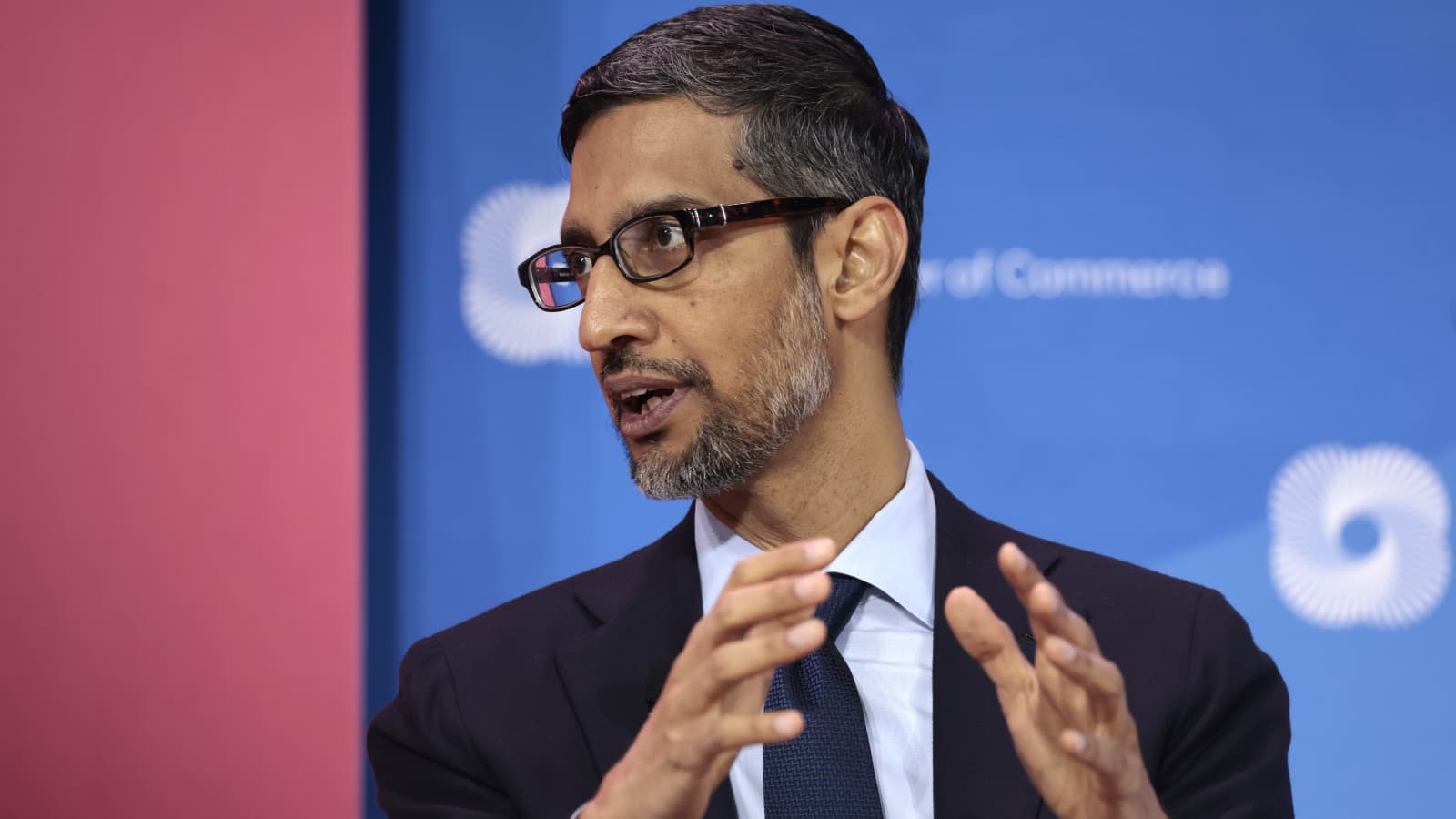Companies are fighting tooth and nail to get the best brains for their projects in the fiercely competitive field of technology. Tech behemoths like Google are prepared to go to great lengths to hang on to their best talent, as CEO of Perplexity AI Aravind Srinivas recently revealed. During a podcast with Alex Kantrowitz, Srinivas revealed that he tried to hire a Google employee, but the search engine giant ended up paying the candidate four times as much to retain him.

Credits: CNBC
The Recruitment Attempt
Srinivas recounted his experience attempting to lure a skilled professional from Google, specifically from the Google search team. The candidate, who was initially interested in joining Perplexity AI, received a staggering counteroffer from Google the moment he indicated his intention to move. The podcast episode provides a firsthand account of the intense negotiations and the jaw-dropping tactics employed by Google to prevent the talented individual from jumping ship.
The Competitive Landscape
The technology business is well-known for its fierce competitiveness, with companies continuously striving to outperform one another not only in terms of innovation, but also in terms of attracting and maintaining top people. Sundar Pichai has constantly led Google to the forefront of technical developments, and the company’s search team is critical to its success. The struggle for competent individuals in the computer sector has resulted in growing wage packages, appealing benefits, and, as demonstrated in this example, exceptional counteroffers to retain important employees on board.
Skepticism and Netizen Reactions
While Srinivas’s account is compelling, it has sparked skepticism among netizens. Some question the feasibility of Google quadrupling the salary of a search team engineer, suggesting that such a move might be an exaggeration. A user named gemeine holly expressed doubt, stating, “He is probably exaggerating, they quadrupled the offer of a search PA eng!! Unless the eng is L9+ AND has significant patents/work in search/kr, I don’t see why Google will quadruple salaries. There is no lack of quality L6s and L7s at Google. Goog is stingy with salaries.”
The Impact of Quadrupling Salaries
If the account is indeed accurate, the implications of Google quadrupling an employee’s salary are noteworthy. It signals not only the value placed on the individual but also the lengths to which tech giants are willing to go to retain key personnel. Such a move could have several consequences within the industry.
Retention of Expertise: Google’s willingness to quadruple a salary to retain an employee suggests a deep commitment to retaining specific skill sets and expertise. This tactic not only ensures the company retains valuable knowledge but also safeguards against potential competitors benefiting from their employee’s skills.
Salary Inflation: The tech industry may see salary inflation if stories such to this one start to appear more frequently. The cost of hiring and maintaining qualified workers may rise as businesses compete for top talent, which could have an effect on the industry’s wage structure as a whole.
Employee Morale and Motivation: The revelation of such lucrative counteroffers may affect the morale of other employees within Google who might wonder why such extraordinary measures are taken for some individuals. Striking a balance between recognizing and rewarding exceptional talent while maintaining fair compensation practices for all employees could become a challenge for companies.
Conclusion
The battle for talent in the tech sector is fierce and appears to be going nowhere, especially in light of Google’s alleged salary-quadrupping practices. The competition for talent is still vital to business success as organizations compete with one another in terms of innovation. The reported action by Google, whether it turns out to be a trend or a singular occurrence, is a sobering reminder of the remarkable lengths firms will go to in order to attract and keep top people in the fiercely competitive and rapidly evolving tech industry.












